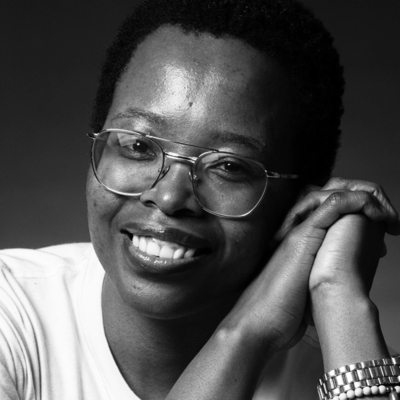Lwando Xaso

Lwando Xaso obtained her law degree (LL.B.) from the University of Johannesburg in 2005, and her masters in law (LL.M.) in constitutional governance and administrative justice at the University of Cape Town in 2009. She has worked as a researcher for the Democratic Governance and Rights Unit and clerked for Justice Edwin Cameron of the Constitutional Court of South Africa. Ms. Xaso contributed to the book “One Law One Nation” by Lauren Segal and Sharon Cort in celebration of the 15th anniversary of the Constitution of South Africa.
“I have learnt that there aren’t any fast and easy answers to the problems that the world faces but our duty is to try.”
How did you first become interested in human rights law?
I worked at the Constitutional Court for Justice Edwin Cameron, who has contributed so much to South Africa. One day while we were working on a case he asked me what I was going to contribute to my country. I thought my contribution was taking advantage of opportunities that have been made available by those before me - I had never thought about my contribution in the form of service, only in terms of exploiting my opportunities. I now realize that being a lawyer in South Africa provides me with an opportunity to make a meaningful contribution to the lives of others through the fulfillment of their socio-economic rights, especially the right to education. That realization led me to my interest in human rights litigation.
From what or whom have you drawn inspiration in your work as a human rights lawyer?
Justice Edwin Cameron is my inspiration. He is a gay, HIV positive judge and I watched him take every opportunity that came his way to bring awareness to HIV/AIDS and gay rights, no matter how tired he was. I have never witnessed someone work as hard as he does for the causes close to his heart. The heart he puts into the Constitutional Court’s judgment inspires me. Sometimes he does not sleep because the gravity of his work; trying to find justice keeps him up at night. I have seen him use law to benefit those that law should, in fact, protect. His moral compass has been my inspiration.
What issues do you feel most determined to address as a human rights lawyer?
The right to education. I would not have the life that I have without the education I have been fortunate enough to receive. The state of education in South Africa is alarming and I am a bit embarrassed to have been the recipient of a quality education while there are some who learn under trees without any books.
What obstacles do you perceive as the most challenging in your work?
The challenge would be finding a solution to the education crisis that takes into account the government’s budget constraints. Merely criticizing the government is easy but sometimes it can be unproductive. Admittedly finding an education strategy that works is difficult - as evidenced by difficulties faced by developed countries - but this is not an issue that can be solved independent of government. In the meantime the government can ensure that the budget that is allocated to education is used optimally, which is not the case at the moment with rampant reports of corruption plaguing the system.
Why did you decide to study human rights at Notre Dame? How has the experience been?
Notre Dame has educated many prominent South African human rights lawyers that I admire and I wanted to follow the same path. It is a respected institution in South Africa. Plus I love football! I love being a part of this institution that has a message of service at its core.
So far it has been life-changing, challenging, and just so much fun as well. I have learnt that there aren’t any fast and easy answers to the problems that the world faces but our duty is to try. The best part of the program is interacting with classmates around that world - that has been another form of valuable education for me. The seminars arranged in between classes are also enlightening and stimulating. I have a better understanding of how diverse the world is and most importantly what unites us within our differences.
How will an LL.M. education from Notre Dame allow you to be a more effective human rights lawyer?
A human rights L.L.M. from Notre Dame carries a lot of weight around the world. The program, with its wide variety of courses and excellent professors who also have practical experience in human rights, provides a solid foundation for a career in human rights. What I enjoyed the most and will help me in being effective within the field is the practical element of the classes: participation in class is a must, and we present a lot on the topics we study, which builds confidence. I am more articulate because of this program and this will serve me well in the future.